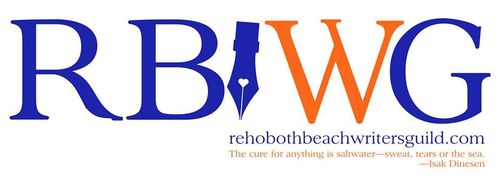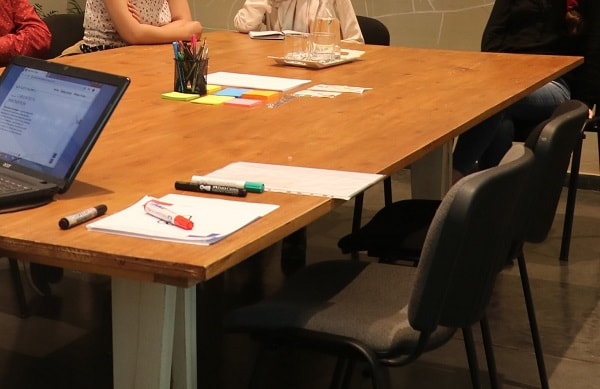RBWG Summer 2024 Classes
In Person and Online Tutorials via Email
Weekly Calendar
|
Register Here Please register first with Maribeth at [email protected] to make sure that the class is running (at times we do not have enough participants to make the class work) or is not already filled. Maribeth will respond to you within a day. Pay Here Because we are committed to keeping our classes small and because we can only continue to do this if participants commit to and pay for all classes, we ask that ONCE WE CONFIRM THE CLASS WILL RUN, you pay for the full class amount up front. If you are interested in a class and cannot pay for it up front, just send Maribeth an email and we’ll work out a payment plan. Please do not pay prior to hearing from Maribeth that the class is running and a seat is available. We are unable to make full refunds if payment is received without confirmation from Maribeth first.
|
Our Instructors
Click here to read brief biographies for each of our instructors.
Nonfiction
Places in the World – Elise Seyfried (4 sessions)
When: Mondays, July 22, 29; August 5, 12
Where: Online Tutorial via Email
Cost: RBWG Members $200; Non-Members $225
Life is a rich and meaningful journey, as we writers well know. Whether we physically travel the globe, or stay closer to home, the different places in our lives can inspire some wonderful writing! Have you ever revisited the very first place where you lived as a child? Did you make a special connection with Barcelona—or Boston? How have your experiences of the world changed you? You will be challenged to capture your impressions on paper and to relive those magical places that have lingered in your memory. Each student will receive a personalized assignment for each of the four weeks of class, based on a short bio they'll share with me. Join me for some terrific armchair (and keyboard) traveling this summer!
Beginning Memoir/Personal Essay – Judy Catterton (4 sessions)
When: Tuesdays, 10 a.m. – Noon, July 16, 23, 30; August 6
Where: Lutheran Church of Our Savior, Rehoboth
Cost: RBWG Members $200; Non-Members $225
Does the notion of writing a memoir send shivers down your spine? Are you afraid you don’t have stories worth telling? Or you’re not a good enough writer to tell them? Maybe you want to record reminiscences for your children and/or grandchildren to read. This class will give you an opportunity to flesh out the stories you want or “need” to tell. You may want to work on stand-alone individual essays or one continuous narrative. You will hear from others in the same boat—that shaky one that holds people who also wonder if they are “real” writers—what resonates with them, what intrigues them, what they want to know more about.
When: Mondays, July 22, 29; August 5, 12
Where: Online Tutorial via Email
Cost: RBWG Members $200; Non-Members $225
Life is a rich and meaningful journey, as we writers well know. Whether we physically travel the globe, or stay closer to home, the different places in our lives can inspire some wonderful writing! Have you ever revisited the very first place where you lived as a child? Did you make a special connection with Barcelona—or Boston? How have your experiences of the world changed you? You will be challenged to capture your impressions on paper and to relive those magical places that have lingered in your memory. Each student will receive a personalized assignment for each of the four weeks of class, based on a short bio they'll share with me. Join me for some terrific armchair (and keyboard) traveling this summer!
Beginning Memoir/Personal Essay – Judy Catterton (4 sessions)
When: Tuesdays, 10 a.m. – Noon, July 16, 23, 30; August 6
Where: Lutheran Church of Our Savior, Rehoboth
Cost: RBWG Members $200; Non-Members $225
Does the notion of writing a memoir send shivers down your spine? Are you afraid you don’t have stories worth telling? Or you’re not a good enough writer to tell them? Maybe you want to record reminiscences for your children and/or grandchildren to read. This class will give you an opportunity to flesh out the stories you want or “need” to tell. You may want to work on stand-alone individual essays or one continuous narrative. You will hear from others in the same boat—that shaky one that holds people who also wonder if they are “real” writers—what resonates with them, what intrigues them, what they want to know more about.
Poetry
Poetry: Back to Basics – Ellen Collins (4 sessions)
When: Mondays, July 8, 15, 22, 29
Where: Online Tutorial via Email
Cost: RBWG Members $200; Non-Members $225
Have you always wanted to write poetry but think it’s too complicated? Or has it been a while since you’ve written a poem and you’d like a refresher course in the basics? This class will show you ways to jumpstart the poet in you, will help you call forth the poems that are waiting inside of you, will surprise you with the simplicity and joy of poem-making.
Experiments with Obsessions in Poetry – Gail Comorat (5 sessions)
When: Wednesdays 10 a.m. – Noon, June 19, 26; (no class July 3 & 10), July 17, 24, 31
Where: Lutheran Church of Our Savior, Rehoboth
Cost: RBWG Members $250; Non-Members $280
I would never abandon the puzzle
Sleeping in the next room
But I could not solve it
—From Gabriel by Edward Hirsch
We all have obsessions in our writing. We try to make sense of the puzzle of why we need to write repeatedly about the same subject. Edward Hirsch could not let go of his son’s bewildering death, so he wrote a collection of elegies about Gabriel. In Ada Limón’s poetry collection, The Carrying, she wrote about coming to terms with infertility. When Andrea Hollander’s world collapsed in divorce, she kept writing about the betrayal in order to move forward.
These stories or events are so important to us that we worry we’re unable to write about anything else. We feel the necessity to tell about the divorce, the death, the loss of a friendship or home. Writing these poems helps us to understand, to move on.
This class is for poets who are beginning or are already working on a collection. Using a variety of example poems, we’ll experiment with writing different styles of poems, searching for the best way to tell a story or event. We’ll spend time gently critiquing new work each week that has been generated from class assignments.
When: Mondays, July 8, 15, 22, 29
Where: Online Tutorial via Email
Cost: RBWG Members $200; Non-Members $225
Have you always wanted to write poetry but think it’s too complicated? Or has it been a while since you’ve written a poem and you’d like a refresher course in the basics? This class will show you ways to jumpstart the poet in you, will help you call forth the poems that are waiting inside of you, will surprise you with the simplicity and joy of poem-making.
Experiments with Obsessions in Poetry – Gail Comorat (5 sessions)
When: Wednesdays 10 a.m. – Noon, June 19, 26; (no class July 3 & 10), July 17, 24, 31
Where: Lutheran Church of Our Savior, Rehoboth
Cost: RBWG Members $250; Non-Members $280
I would never abandon the puzzle
Sleeping in the next room
But I could not solve it
—From Gabriel by Edward Hirsch
We all have obsessions in our writing. We try to make sense of the puzzle of why we need to write repeatedly about the same subject. Edward Hirsch could not let go of his son’s bewildering death, so he wrote a collection of elegies about Gabriel. In Ada Limón’s poetry collection, The Carrying, she wrote about coming to terms with infertility. When Andrea Hollander’s world collapsed in divorce, she kept writing about the betrayal in order to move forward.
These stories or events are so important to us that we worry we’re unable to write about anything else. We feel the necessity to tell about the divorce, the death, the loss of a friendship or home. Writing these poems helps us to understand, to move on.
This class is for poets who are beginning or are already working on a collection. Using a variety of example poems, we’ll experiment with writing different styles of poems, searching for the best way to tell a story or event. We’ll spend time gently critiquing new work each week that has been generated from class assignments.
Copyright © Rehoboth Beach Writers Guild

